I’m looking for a poetic way
to express
how much
how very very much
I dislike
Fidel Castro
(an oldie but goodie that deserved another go-’round here)
English Translations of Cubans Writing From the Island
I’m looking for a poetic way
to express
how much
how very very much
I dislike
Fidel Castro
(an oldie but goodie that deserved another go-’round here)
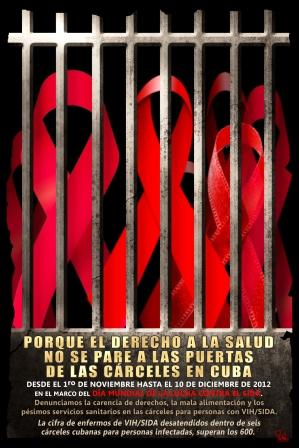


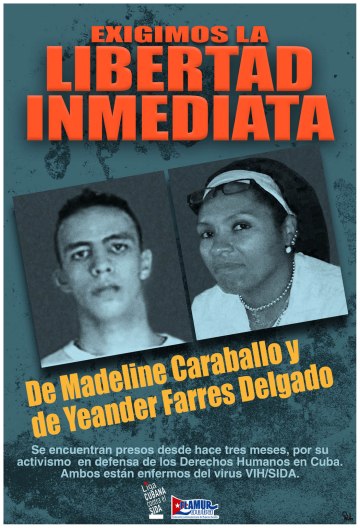

By Ignacio Estrada, Independent Journalist
Havana, Cuba. This little note is in tribute to a very important Cuban graphic designer exiled in the United States. Rolando Pulido, native of the province of Cienfuegos, living in New York, collaborates closely without compensation on his designs in support of Cuban civil society. His designs not only form a part of different graphic campaigns, but are already used as logos for different organizations within Cuba.
This is a very simple way to say thank you in capital letters to someone who never says no to others’ requests and requests coming from the island.
25 February 2013
The leaders of the revolutionary government and of the Cuban state enjoy an odd isolation in which they live isolated (I believe redundancy is good) from the rest of society, thereby generating and manipulating a morbid curiosity in which many people wonder if there is any difference between an imperialist tycoon and a communist bigwig.
Although not impossible, it is in fact very difficult to enter into this protected ghetto. Cuba’s leaders socialize together, relax together and mate together. There are cases – and not isolated ones – in which the wife of some military official ends up as the casual acquaintance of the comrade General. She does this not in pursuit of pleasure but because it presents a better game plan. He is a widower and has a doctorate in Marxism, so he understands perfectly well the meaning of “communal property.”
The sad though understandable fact is that certain dissidents (and for now we will set aside the unseemly self-confidence of the top leadership) marginalize themselves for various reasons and live inside a bubble. I am not unaware of the real danger they face, but I do not confuse it with the emotional aspects. I am, however, certain that, if one wants to have a real impact in political life, such self-confinement is a mistake because, although it protects them, it also makes them invisible. continue reading
I never tire of saying that the Cuban government has for years shown that it knows all too well how to deal with groups and organizations, hiding behind its well-worn and exaggerated status as a victim with power. For years it has tried, almost successfully, to convince us that it is confronting a giant. What it does not know is how to deal with is individuality.
The powerful in Cuba are dividing up the wall. They say they are creating openings, but these are only cracks. The scenario for them is not favorable. The promised fantasy of a bright future is fading in light of a non-existent economy.
Social networks and cellular telephones put an end to that. They have revealed to the world what for a long time it was forbidden to see, helping to lift the virgin’s sacred veil. But being stuck in front of a bright computer screen seems to me to be a mistake. I do not think now is the time to get our concepts confused. Individuality is not the same thing as individualism. And being prominent is not the same as being heroic.
At the daybreak of a summer that promises to be very hot, and after years of waiting without any visible sign of dawn, we can thank God that few Cubans are inclined to be the faithful penitents of a new demigod, who with bland words and grandiloquent sentences would attempt, at his peril, to use citizens’ rights as a marketing ploy.
I believe the more important role for the current dissident movement is to break through the circle of exclusion and to try to merge with the rest of society to economically empower themselves.
Today, despair seems to be the strongest of enemies; overseas Cubans, the most faithful of friends.
February 22 2013
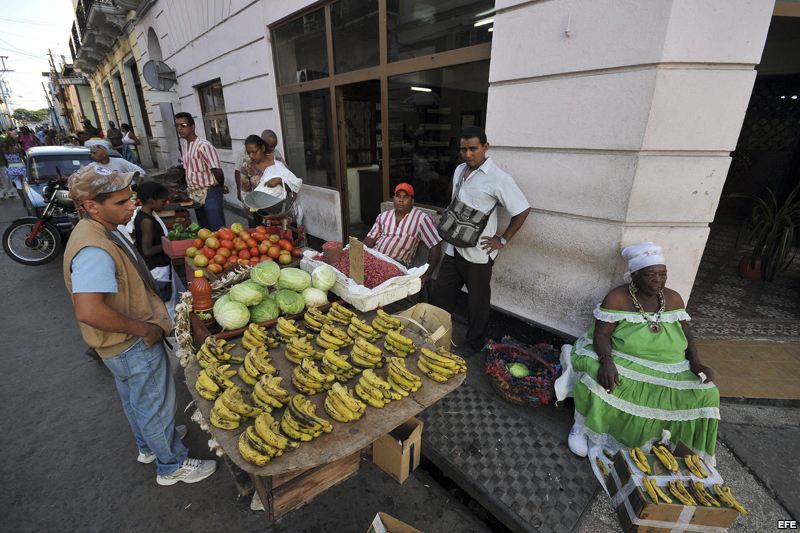
A few days ago, a pushcart vendor in my neighborhood was complaining about a new government measure that will apply to his trade: soon, street vendors selling agricultural products, already proliferating throughout the city, will be forced to get a regulation cart from the State measuring one square meter, two levels to show the merchandise, and a roof. “Raúl’s cart,” as the device has been nicknamed, will cost the vendors 800 pesos, and this tax will be in addition to the recent increases that the “self” employed have endured. Another business that the government will benefit from.
The excuse by the authorities this time is that the vendors use any rolling contraption for selling their goods, with the resulting disfigurement of the city, and, in addition, there are too many illegal vendors, so “Raul’s cart” will serve to monitor violations by those who evade applying for a seller’s license, thus avoiding paying the tax. The cart will be, therefore, something that will grant legality to its owner, a kind of certificate of guarantee that, in a way, will support the inspectors’ jobs. continue reading
Such a supposedly innocent joke in a country where everything is corruptible ignores that there is always the possibility of using the new pushcarts for the benefit of the cunning, so the argument of the supposed “control” is nothing but a subterfuge to quell possible disagreements. On the other hand, it is true that most of the pushcarts are in a deplorable state, but if we are talking about a beautification project for the city, we would have to start with the elimination of the many gushing sewers, the garbage dumps and rubble, and tear down dilapidated buildings, perform complete building maintenance, repair streets and sidewalks, unclog the street drainage systems and eliminate unsanitary and dilapidated facilities, such as “soup kitchens” where food is prepared and distributed to people without resources, as well as the filthy state cafeterias where you can find an array of items for sale, such as rum, cigarettes, condoms and light food of questionable quality and hygiene, and these, only to name a few notorious examples.
After sympathizing with the tribulations of the pushcart vendor, who was telling me his displeasure and that of his other vendor colleagues, I asked him what they proposed to do, so I could support his claims in my blog. “What are we supposed to do, reporter! Can’t you see that if we protest, they will take away our licenses? We can’t do a thing. I’m telling you so you can expose it on the internet”.
Wow! Observe I am both the therapist’s couch for angry vendors and the indirect vehicle for their anonymous protest. I could not help but smile. “OK, my friend, I will denounce two things: one, the government for blackmailing you and the other, you, for being such scaredy-cats and taking it lying down. While I’m at it, I will warn Cubans to watch out for your prices in the near future, because I suspect we may be the ones who will end up paying for your new regulation carts.”
I have the impression that now my vendor is also mad at me.
Translated by Norma Whiting
February 22 2013
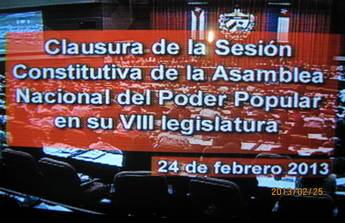 Sunday, February 24 was the culmination of a Cuba’s own “original” electoral process. Deputies of the National Assembly of People’s Power – whose own candidacies had been previously approved by the Communist Party Central Committee – nominated and elected the President, Vice-President and Secretary of the Assembly. They subsequently elected the President, First Vice-President, five Vice-Presidents, Secretary and remaining members of the Council of State. As in any human endeavor there were positive and negative aspects.
Sunday, February 24 was the culmination of a Cuba’s own “original” electoral process. Deputies of the National Assembly of People’s Power – whose own candidacies had been previously approved by the Communist Party Central Committee – nominated and elected the President, Vice-President and Secretary of the Assembly. They subsequently elected the President, First Vice-President, five Vice-Presidents, Secretary and remaining members of the Council of State. As in any human endeavor there were positive and negative aspects.
First things first. It is laudable that no member of the Council of State can serve more than two five-year terms in any one post, and that there is also an age limit on office holders. The re-elected President has also publicly stated that this will be his last term in office, and that the First Vice-President will be someone who does not belong to the generation of Cuban revolutionaries – the so-called “historic leaders.” Although this announcement has come somewhat late, people are welcoming the measures, taken after more than half a century of a one-person government with two faces, even though they will have to wait until 2018 for them to take effect.
On the other hand, to repeat yet again that socialism is irreversible, and that all that is left to be done is to perfect it, update it and save it when the majority of the citizenry consider it to be beyond salvation – especially in light of its demonstrable failures and inefficiencies over the course of more than fifty years – is not a pragmatic approach.
It is quite clear to everyone that its principles and dogmas, maintained through force, are the main impediments to real freedom and the development of productive forces, which are the only hope we have for overcoming the deep economic crisis in which we find ourselves.Nor is it useful, though it is now routine to do so, to speak of essential political and social changes necessary to save socialism. Instead, we should be talking about how to save the country, which is something much more important. In spite of some accommodation by the “historic leaders,” the principal levers of power remain firmly within their hands.
The changes in the offices of the President, Vice-President and Secretary of the National Assembly are merely cosmetic. Since the right to be elected as deputies is not granted to all citizens, no matter they may think, the Assembly is not representative of the full political spectrum of the nation. If it does not change the way it operates, it will continue to be more of a formality than a reality, a mere echo change for the state.
In short, the waiting game continues, now with a five-year extension.
Photo caption: “Closing of the Constituent Session of the Eighth Legislative National Assembly of People’s Power, February 24, 2013.”
February 26 2013
The bus stop at G and 27th, three in the afternoon. Several people gather around a skinny seventy-something. He’s not selling peanuts, he’s not selling newspapers, he’s not selling candy bars, he’s not selling anything. He is exchanging one Cuban peso for 80 centavos. It works because although public transport costs forty centavos, in practice breaking a Cuban peso into smaller coins is difficult because Cuban pesos are only in the places selling on the ration book (at the bodega and the bakery) are fractions handled.
People prefer to make change with the skinny guy, outfitted with a cardboard box of his own invention hanging just below his chest, because with a peso you can only pay for one trip, and if you change it you can pay for two, others prefer to favor the retiree before tossing a coin in the farebox.
And so it goes! I say to myself annoyed at my camera. I try to speak to him but he crosses diagonally across G Street to the stop for the P-2, which starts its journey towards Alamar there.
I tried to calculate (you already know, numbers aren’t my strong point): With five people making change, he can buy himself a small coffee; with forty a pizza. How many hours a day will he have to dedicate to tramping from stop to stop, how many times will the police stop him. But in any case, the next list of allowed self-employment professions should include money-changer, coin-breaker, or something like that.
February 25 2013
Zone of Silence
Presentation and lecture by Ángel Santiesteban
Wednesday 27 February at 6:00pm.
You can send text messages of support to the writer at:
53716460 53233726
You can follow the presentation live via Twitter @estadodesats
@AGRodiles @ailermaria @aimaraperez28 @solucioncuba
Place: Estado de Sats headquarters
Address: Ave 1ra % 46 y 60 #4606 . Miramar. Playa
Santiesteban by Pulido
The writer Ángel Santiesteban-Prats must report to prison on Thursday, according to his reports on Twitter.
The author, winner of the Casa de las Americas prize and keeper of the blog The Children Nobody Wanted, was sentenced to five years in prison for the alleged crimes of “housebreaking and injuries.”
More information can be found here.
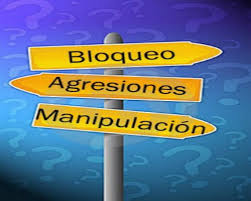
With the arrival of the anniversary of the death of Orlando Zapata Tamayo, the Cuban martyr and human rights defender on the Cuban island, hundreds of arrests were carried out in order not to allow any festive and peaceful festive activity on the part of the opposition to the Castro regime.
A party such as the Hard Frontline, with an office in Los Pinos neighborhood, was besieged and some were locked up for no reason.
We are going through a transition, if they comply with the guidelines agreed at the 6th Congress of the Cuban Communist Party. These five years will be the last that will under the thumb of Raul Castro and there will be a weakening of totalitarian power and a coming of the path of true democracy.
But if so will these be unforgettable years for the Cuban opposition?
State Security and its support brigades (keeping the regime’s boots clean) are becoming more violent. Each anniversary of a death of Cuban dissidents leads to several arrests, repudiation rallies, persecutions, “accidents,” or unwanted trips.
On anniversaries like these the Human Rights Commission in Cuba will report simultaneous arrests and the rate of arrests of dissidents in Cuba will increase.
The fight for some is on time, for others, this would be an opportunity for the Cuban Dream: democracy and freedom from all political taboos.
25 February 2013
By Pablo Pascual Méndez Piña
HAVANA, Cuba, February 23, 2013 (Pablo Pascual Méndez / www.cubanet.org).
Coinciding with the fourth anniversary of the death of Orlando Zapata Tamayo, the first meeting of Estado de Sats in 2013 was held on Saturday at its headquarters on 1st Street between 46 and 60, in the Havana neighborhood of Miramar. The meeting was attended by about a hundred people.
The issue addressed by the panelists focused on the Citizens’ Demand for Another Cuba, which demands the ratification of the United Nations covenants signed by Cuba’s then Foreign Minister Felipe Perez Roque, four years ago, and which, as explained at the meeting today, should be discussed in the Council of Ministers, approved by the National Assembly and included in the laws of the Nation.
At a break in the panel, the meeting honored the memory of all those who have died defending the cause of human rights, the democratization of Cuba, and the downing in international waters of the two Brothers to the Rescue planes, a crime which occurred 17 years ago tomorrow. Also remembered was Antonio Rodiles’ father, recently deceased, who in life was a fervent attendee at Estado de Sats debates.
On this occasion, the panel consisted of the Sakharov-prize-winning psychologist Guillermo Fariñas, the Baptist pastor Mario Felix Lleonart, the attorney Laritza Diversent, the historian Manuel Cuesta Morúa, and the president of the Patriotic Union of Cuba (UNPACU) Jose Daniel Ferrer; as always, the host was Antonio Rodiles, who served as moderator.
Presentations were made on civil society and on the collection of signature for the Citizens’ Demand for Another Cuba. A documentary by the intellectual Juan Antonio Blanco was screened, and several questions were asked of the panel by those present, as well as from abroad via text message.
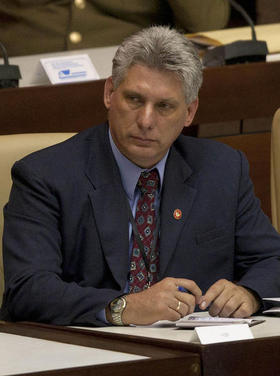 Knowing how to read between the lines is a prerequisite to understanding Cuban politics. The structure of power on the Island is short on details, such that we must interpret the silences as well as the seemingly inconsequential data. The ascension of Miguel Diaz-Canel, to the vice presidency of the Council of State has followed a well-known script, easily detected by analysts and the curious for months. His growing presence in the national media and his having accompanied Raul Castro to the Community of Latin American and Caribbean States (CELAC) Summit, already augured his ascent to the second post of the Cuban elite.
Knowing how to read between the lines is a prerequisite to understanding Cuban politics. The structure of power on the Island is short on details, such that we must interpret the silences as well as the seemingly inconsequential data. The ascension of Miguel Diaz-Canel, to the vice presidency of the Council of State has followed a well-known script, easily detected by analysts and the curious for months. His growing presence in the national media and his having accompanied Raul Castro to the Community of Latin American and Caribbean States (CELAC) Summit, already augured his ascent to the second post of the Cuban elite.
Díaz-Canel possesses characteristics that undoubtedly influenced his appointment. A man who shines very little, himself, from whom we cannot recall a single phrase of his monotonous speeches, someone who projects absolute fidelity, a good physical presence and a dose of youth (at 52), so needed by Raul Castro to show that his government is generationally renewing itself. Restrained and sober in public, he seems to know that charisma only bring problems when you are that close to the historic nomenklatura. He has skillfully passed all the tests of loyalty and tameness the General President has put in his path, before being allowed to sit in the number two seat. continue reading
Although the real power remains in the hands of the octogenarians, the biological clock has forced the Cuban regime to publicly signal who the dauphin is. He who is among those who have survived the successive purges of past years, the last of which ended the career of vice president Carlos Lage and then foreign minister Felipe Perez Roque. The Cuban elite has chosen its successor, spurred more by the biological imperative than by real desires for renewal or reform. Time was pressing and didn’t allow for molding new candidates to choose among.
Diaz-Canel’s climb to the top was short; he started in the Cuban armed forces and then became the leader of the Young Communists Union. From there he emerged as the first secretary of the Communist Party in Holguin province, and also held the position of Minister of Higher Education. His trump card has been obedience, that ability to make his superiors believe that he is the man of continuity, not of rupture. Clearly, this could be the strategy of a chameleon who prefers to blend into his environment until he rose to a real position of power. We will have to see how he behaves when the gaze of Raul Castro is no longer upon him.
For now, Miguel Diaz-Canel awaits an uncertain journey fraught with booby-traps. It would not be the first time a dauphin believed himself indispensable and ended up accused by his own creators of having become addicted to the “honey of power.”* So he will have to be cautious, responsive to every order, and patient.
*Translator’s note: A phrase used by Fidel Castro in reference to Carlos Lage and Felipe Perez Roque when they were ousted.
25 February 2013
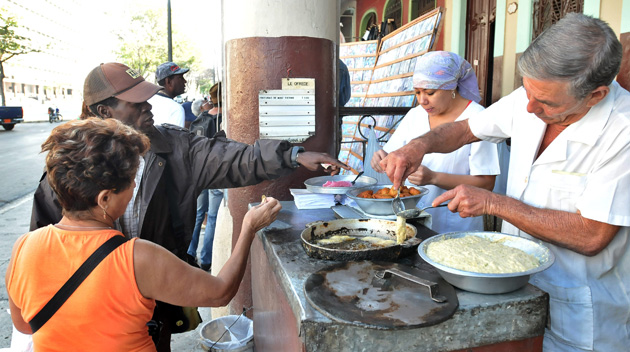 Without McDonald’s, Burger King or KFC, fast food par excellence in 21st century Cuba consists of fried food and croquettes made from unknown ingredients.
Without McDonald’s, Burger King or KFC, fast food par excellence in 21st century Cuba consists of fried food and croquettes made from unknown ingredients.
Throughout Havana there are thousands of street vendors specializing in rustic cooking. They sell fried food and heavy croquettes. Some like Ignacio prepare the coating for their fried items with wheat flour, salt and chives. Jose Antonio merely adds a commercial seasoning mix. Yoana prefers to craft hers from yams or corn meal. They are not bad if eaten hot.
Cold is another matter. A greasy packaged ball that tastes like plastic. In the capital croquettes often are not made by the vendors themselves. They usually buy them from special fish markets and then resell them for a 50% profit. continue reading
Right now only the cheapest foods can bought with the national currency. A packet of ten croquettes costs 5 pesos. They are within everyone’s budget, though no one knows with any certainty what is in them.
Some say they are made with claria* or catfish. Others claim they are prepared with fish byproducts. And one person, who is said to have worked in a place where croquettes are produced, swears they are manufactured with chicken skin. No matter. They are the gastronomic wild card of the elderly, retired people, students, tramps, the unemployed and laborers.
The pair of “mystery” croquettes that you have for breakfast are the same as those they serve your children for school snacks. They are also routinely used for lunches or other meals along with the inseparable white rice, chickpea soup or black beans, and tomato salad.
If a street vendor does not have his own covered wagon, a guy who owns some old wrecks will rent him one for 50 pesos a day. Before dawn the vendors heat the cooking oil in a big cast iron pot. When the flame is going strong, they will fry the little flour balls. They often fry hundreds of items using the same oil. They cook the croquettes over medium heat.
Some fried food vendors sell the croquettes for a peso apiece. The more clever ones offer a piece of bread with two croquettes for 5 pesos. Creole food is washed down with a soft drink for two pesos a glass. Hundreds of students and workers head to their schools or factories for a quick breakfast of fried food or croquettes.
For most Cubans a breakfast of scrambled eggs with bacon or ham, buttered toast, orange juice and cafe con leche or hot chocolate is something only for rich people, business executives or government ministers. Or it is simply an extravagance one only sees in foreign films.
In Cuba the normal breakfast consists of coffee without milk, the ration book’s allotted 80 grams of bread per capita topped with homemade mayonnaise or oil and garlic.
Fried food vendors gained notoriety in the 1990s during the bleak years of the “special period,” an era in which nutritional needs were satisfied with grapefruit skins and orange leaves. Or warm water with brown sugar, the famous “chicken soup.”
There were some lazy scoundrels who made money selling pizzas by replacing the cheese with melted Chinese preservatives. During this period people lost weight as though they were in a Finnish sauna and developed exotic illnesses like beriberi and optical neuritis.
It was then that the olive-green autocrats pulled out of their sleeves a list of concoctions developed by nutritional experts. In their laboratories they had designed foods to fool the stomach – New Zealand yam pasta, fricandel, dogmeat, meatless meat flour, Cerelac, powdered chocolate milk, and tacos, presumably Mexican, with black beans.
The father of all these inventions is Fidel Castro. An untiring nutritional researcher who at age 86 has proudly declared the moringa tree to be the food par excellence for Cubans of the future. The jewel in the crown was a ground meat product made with beef, pork or chicken by-products bound together with some 60% soy. Its official name was “extended ground meat,” but people called it “extended soy.”
It was a surprise to Havana’s butchers. At night, under cover of darkness, they poured gallons of water over containers filled with the revolting stuff. The concoction grew, according to them,without losing its essential qualities. It is perhaps the only food product developed in Cuba that approximates the biblical parable of the loaves and the fishes.
For the moment the bleak years remain in the past. But the issue of food is still the number one priority for the average Cuban.
Without McDonald’s, Burger King or KFC’s fried chicken, fried flour and croquettes made from unknown ingredients are all the rage in Havana. Of course, they cannot compare to a sandwich from Miami, a potato omelette from Madrid or a Turkish kebab from Berlin. But they are selling like crazy all throughout the city.
Ivan Garcia
Photo from Noticias 24
*Translator’s note: An invasive species of catfish, introduced into Cuba from Asia in hopes it would help alleviate food shortages.
23 February 2013
I must be brief because I’m dedicating myself to “the tasks belonging to my sex” while Yoani undertakes her exemplary work as a citizen ambassador. What most caught my attention in the recent “elections” was Raul Castro repeating that Machado Ventura would not leave, nor would we have to wait another day to know the names of the members of the new Council of State. What I most admired was the popular indifference. As I noted in my Twitter account, there were no popular celebrations, people didn’t go out into the street to celebrate the reelection of their leader, the car horns didn’t make the slightest noise, and it didn’t occur to anyone to hang a Cuban flag from their balcony. If we compare this chilly reception with the demonstrations we saw in Ecuador at the reelection of Correa, or the symbolic welcome Chavez received in Venezuela, we have to conclude that those Revolutionary emotions, that overwhelming enthusiasm so bragged about, have died forever.
This will be not only be the last term of Raul Castro, but also the swan song for the already dying Cuban revolution.
25 February 2013
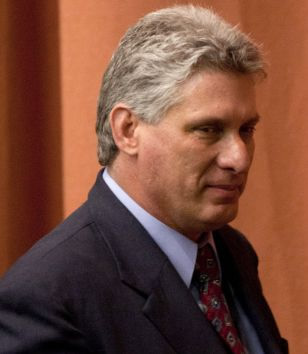
Ring, ring, ring …. international calls always take an eternity to open a passage through to a phone in Cuba. As if they had to push through a thick, dense atmosphere. Finally a voice answers on the other end of the line. It’s a friend whom I try to ask about what he thinks of the recently confirmed Council of State and the naming of Miguel Diaz-Canel as first vice-president. “What?” is the only answer I get at first. Then I explain that this Sunday, from Brazil, I was following the formation of the Cuban National Assembly and I would like to complete the report with some impressions from the Island. My friend yawns, confirms that he didn’t watch TV yesterday, and that no one has said anything to him. And I realize that I suffer from the evil of hyper-information, mixed with a certain distortion, produced by my distance from Cuba. I had forgotten the indifference shown by many of my compatriots when confronted with certain issues that are so predictable they no longer generate any expectations.
The designation of the number two man in the Cuban nomenklatura has probably been more commented on and discussed outside the Island than inside. In part because for several months the national media has already been suggesting — with constant allusions to this 52-year-old engineer — that he could become the successor to Fidel Castro. So few were surprised when the former Minister of Higher Education became, as of Sunday, yesterday, the “dauphin” of the Cuban regime. Their biological clock has the octogenarians governing the Greater Antilles at a crossroads: either establish the inheritance now or forever lose the chance seems to be dictating the hands of history. So the line of succession has been left to a much younger figure. They have based their choice on their confidence in the fidelity and manageability of Diaz-Canel, trapped between a commitment to his superiors and a conviction of how limited his real power is.
History shows us that the behavior of these dauphins while they are being observed by their bosses is one thing, and something else entirely when those bosses are no longer around. Only then will we discover who the real man is who yesterday became number two in Cuba. However, I have hopes that the fate of our country will not be decided by this Council of State, nor by this presidential chair. I have hopes that the era of the olive-green monarchs, their heirs and their entourage is ending.
25 February 2013
CUBA: Two journalists jailed, one writer sentenced to five years in prison
The Writers in Prison Committee (WiPC) of PEN International protests a renewed wave of repression and harassment against journalists and writers in Cuba, including the imprisonment of two journalists and the conviction of a writer. Independent journalist Calixto Ramón Martínez Arias has been detained pending trial since September 2012 on charges of “disrespect” against the head of state, while state journalist José Antonio Torres is reportedly serving a 14-year sentence for espionage; both were jailed after reporting on sensitive subjects. Writer and blogger Ángel Santiesteban Prats has been sentenced to five years in prison for alleged trespassing and assault on the basis of an apparently flawed trial. The WiPC calls for Martínez Arias’ immediate and unconditional release. It also calls on the Cuban authorities to provide assurances that Torres’ and Santiesteban’s sentences are not related to their reporting, and to make public details of their trials. continue reading
Calixto Ramón Martínez Arias, journalist for the independent news agency Hablemos Press, was arrested by the Cuban Revolutionary Police at José Martí International airport on 16 September 2012. He had been investigating allegations that medicine provided by the World Health Organisation to fight the cholera outbreak, which began in mid-2012, was being kept at the airport instead of being distributed, as the Cuban government was trying to downplay the seriousness of the outbreak. He was taken to a police station near the airport where he was put in a cell. When he complained about his detention, he was allegedly beaten and pepper-sprayed in the eyes and called out “Down with Raúl, down with Fidel” (“Abajo Raúl, abajo Fidel”). He was held at the police station for 10 days before being transferred to Valle Grande prison until 10 November 2012, when he was transferred to Combinado del Este prison, where he remains.
Although Martínez Arias has not been informed of any official charges against him, he is reportedly being accused of “disrespect” (desacato) towards President Raúl Castro and former president Fidel Castro, which carries a maximum penalty of three years’ imprisonment. His lawyer has not been allowed access to his case file.
There are concerns for Martínez Arias’ welfare in prison. In September 2012 he was reportedly transferred to hospital for treatment for blows received to the left eye. In November-December 2012, he carried out a 33-day hunger strike in protest against at prison conditions. On 12 December 2012 he was placed in solitary confinement after calling Hablemos Press and informing them of the poor conditions inside the prison, in defiance of an order by prison authorities forbidding him to use the telephone. In early January 2013 Martínez Arias reported that he was running a fever but had been denied medical attention.
Prior to his detention, Martínez Arias was arrested several times in May and June 2012. Amnesty International considers him to be a prisoner of conscience, detained solely for his peaceful exercise of his right to freedom of expression.
Also imprisoned is José Antonio Torres, former correspondent for the government newspaper Granma. Torres was arrested in February 2011 after writing articles about the mismanagement of an aqueduct project in Santiago de Cuba and the installation of fibre-optic cable between Venezuela and Cuba. Torres’ 5,000-word article on the mismanagement of the aqueduct project, published in July 2010, was reportedly praised by President Raúl Castro, who wrote in Granma that “this is the spirit that should characterise the (Communist) Party press: transparent, critical and self-critical.” His report on the fibre-optic cable was published four months later. Torres noted in neutral terms that the Vice President Ramiro Valdés was responsible for supervising both projects.
Three months later Torres was arrested and in mid-June 2012, following a closed trial, he was convicted of espionage and sentenced to 14 years in prison and the withdrawal of his university degree in journalism. He has reportedly appealed against his conviction, but fears that his sentence could be increased as a result. Cuba’s state-run media has made only a few brief references to Torres’ case and little is known about the espionage charge, although there are rumours that he may have offered or given confidential information to the US diplomatic mission in Havana.
Meanwhile, Ángel Santiesteban Prats, award-winning writer and author of the blog The Children Nobody Wanted’ (Los Hijos que Nadie Quiso’), is awaiting imprisonment after being sentenced to five years in prison for alleged assault and trespassing. The case dates back to 2009, when a number of charges were filed against him, including charges of a hit and run and aggravated robbery.He was eventually found guilty of having broken into his ex-wife’s house and physically assaulted her; all of the other charges were dropped. His sentence was handed down on 8 December 2012 and confirmed on appeal by the Supreme Court on 28 January.
Santiesteban maintains that the charges are fabricated and politically motivated, retribution for his blog which is critical of the Cuban situation and government. He also claims that he was informed of what the outcome of the trial would be on 8 November 2012, one month before the sentencing took place, when he was arrested along with 15 others following the detention of lawyer Yaremis Flores Julián, and then beaten.
Details of the case against Santiesteban have not been made public in state media. However, according to the appeal lodged by his lawyer, there were a number of irregularities in the trial and sentencing. The plaintiff is said to have changed her statement four times and overall her testimony was inconsistent with the crimes of which Santiesteban was eventually found guilty. A supposed eyewitness for the plaintiff allegedly later confessed in a home video that he had been pressured and bribed by the plaintiff to lie, but this was reportedly discarded by the court. A number of important witnesses in Santiesteban’s defence are said to have been overlooked, including three individuals who testified that he was not at the scene at the time that the crimes are alleged to have taken place, and the headmistress at his son’s school, who stated that the boy had confessed to her that his mother had forced him to make statements incriminating his father. The two-year sentence for trespassing is reportedly a year above the maximum one year penalty for such an offence.
Sanitesteban is a member of the official Union of Writers and Artists of Cuba (Unión de Escritores y Artistas de Cuba – UNEAC). He has won a number of awards, including the Juan Rudolfo Prize from Radio France International (1989), National Prize from UNEAC (1995), Cesar Galeano award (1999), Alejo Carpentier Prize from the Cuban Book Institute for his short story collection Los hijos que nadie quiso (2001) and the Casa de las Américas Prize for his book Dichosos los que lloran (2006).
Please send appeals:
Appeals to:
Head of State and Government
Raúl Castro Ruz
Presidente de la República de Cuba
La Habana, Cuba
Fax: +41 22 758 9431 (Cuba office in Geneva);
+1 212 779 1697 (via Cuban Mission to UN)
Email: cuba@un.int (c/o Cuban Mission to UN)
Salutation: Your Excellency
Attorney General
Dr. Darío Delgado Cura
Fiscal General de la República
Fiscalía General de la República
Amistad 552, e/Monte y Estrella, Centro Habana, La Habana, Cuba
Salutation: Dear Attorney General
Interior Minister
General Abelardo Coloma Ibarra
Ministro del Interior y Prisiones
Ministerio del Interior, Plaza de la Revolución, La Habana, Cuba
Fax: +1 212 779 1697 (via Cuban Mission to UN)
Email: correominint@mn.mn.co.cu
Salutation: Your Excellency
Please send also appeals to diplomatic representatives of Cuba in your country.
***Please send appeals immediately. Check with the WiPC if sending appeals after 20 April 2013***
For further details contact Tamsin Mitchell at the Writers in Prison Committee London Office: PEN International, Brownlow House, 50/51 High Holborn, London WC1V 6ER UK, United Kingdom Tel: + 44 (0) 20 7405 0338 Fax: + 44 (0) 20 7405 0339 e-mail: tamsin.mitchell@pen-international.org
Published by Pen Deutschland
February 24 2013